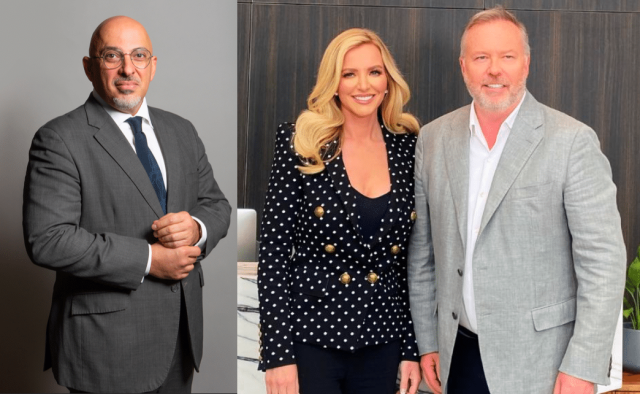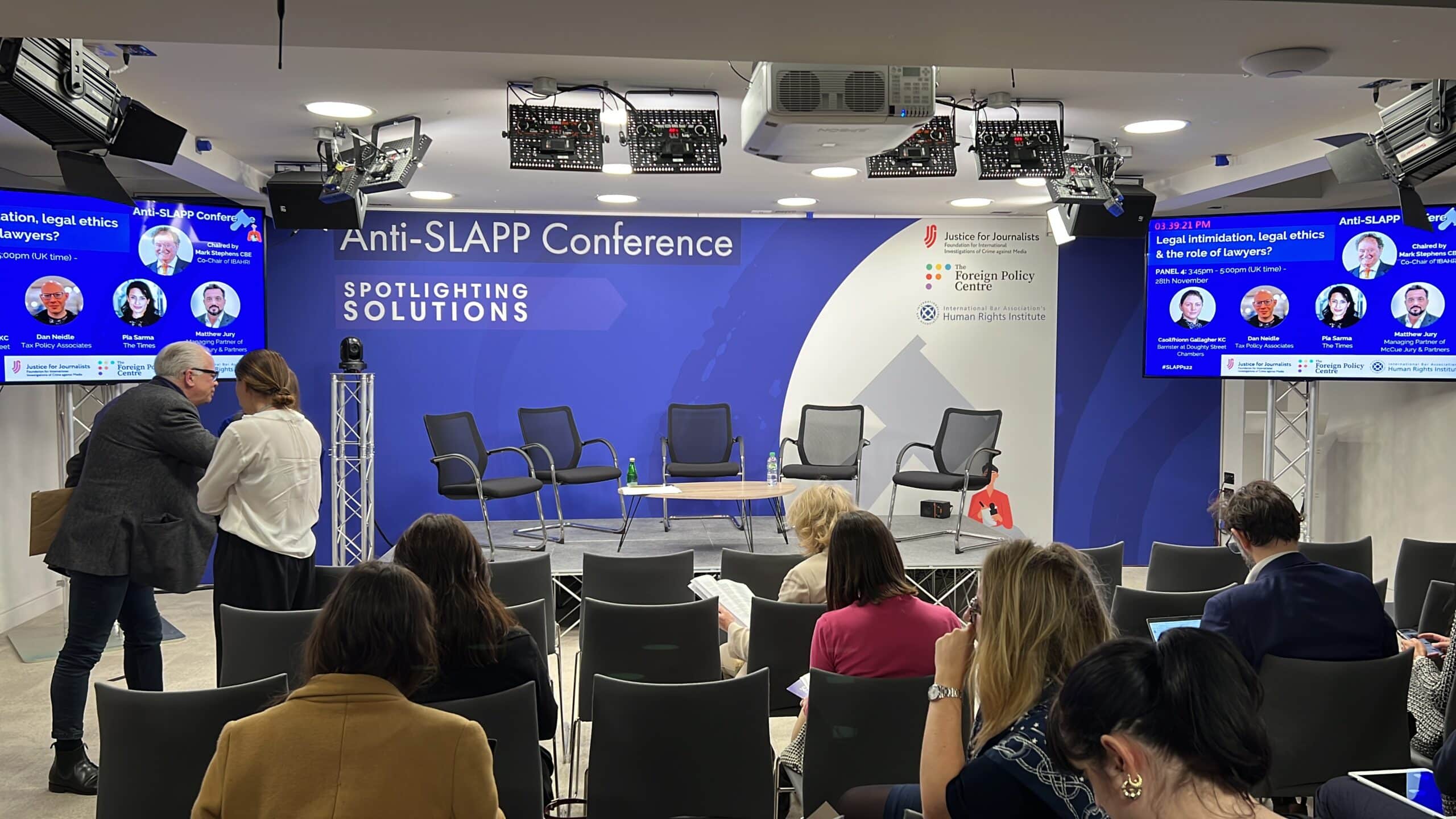Nadhim Zahawi’s attempt to silence me has now resulted in disciplinary action for his lawyer. This is a short piece on why it happened, and what it means – for the lawyer, for SLAPPs, and for Zahawi himself
In July 2022, Nadhim Zahawi’s solicitors, Osborne Clarke, threatened me with libel for saying that Zahawi had lied about his taxes (which, of course, he had). They said I couldn’t tell anyone about their threat, and it would be “improper” and a “serious matter” if I did. This was false; an attempt to intimidate me into silence. I referred the matter to the Solicitors Regulatory Authority.
The FT is now reporting that the SRA has taken action, and has referred the solicitor to the Solicitors Disciplinary Tribunal. He1 may be struck off.
I believe this is the first time a solicitor has been referred to the SDT for abusive tactics in libel litigation – often termed SLAPP.
The threats
Osborne Clarke sent me an email threatening me with a libel action in July 2022 for saying their client, Nadhim Zahawi, had lied. The email included this:

I didn’t respond, but instead published a more detailed analysis of why I thought Zahawi was lying. Osborne Clarke reacted by sending me a letter including this paragaph:

The law
The idea you can send someone a libel threat, and forbid them from telling anyone about it, is outrageous. It’s also without any legal merit.23.
I was shocked to discover that this attempt at intimidation was standard practice in the libel world. I knew the threat was toothless; but many other people who receive correspondence of this kind do not. Often the recipients have no legal representation at all. Even those that do often feel it is risky to publish the correspondence.
So these “secret libel letters” have a chilling effect on public discourse. It’s a classic SLAPP tactic – “strategic litigation against public participation” – running a meritless legal argument to silence criticism. And it’s not permitted. Solicitors must act with integrity, cannot make meritless arguments, and cannot act oppressively and make exaggerated claims of adverse consequences.
Osborne Clarke has made many other false4 claims of confidentiality/without prejudice (as have other libel firms). What makes Osborne Clarke’s behaviour worse is that I know that one recipient of their fake “confidentiality” assertion told Osborne Clarke in 2020 that there was no legal basis for confidentiality. Osborne Clarke responded by backing down. This wasn’t just a case of misunderstanding the law; they knew the confidentiality assertion was false when they made it to me.
Osborne Clarke is a good firm. They could have disciplined the lawyer involved and accepted the consequences. Instead they defend the indefensible.5 This is a disgrace.
The SRA’s response
I referred Osborne Clarke to the Solicitors Regulation Authority. The FT is now reporting that the SRA has taken action, and referred the matter to the Solicitors Disciplinary Tribunal.
The SRA itself has the power to fine solicitors up to £25,000. It only refers case to the Solicitors Disciplinary Tribunal in the most serious cases of misconduct, “particularly if the SRA’s view is that the misconduct is so serious it requires a solicitor to be prevented from practising”.
The wider consequences
The SRA acted with commendable speed after I raised the issue of false confidentiality assertions, and the abuse of without prejudice. It published a “warning notice” in November 2022 making clear that this behaviour was unacceptable.
However some libel solicitors have continued to act in this manner. They either ignore the SRA and continue to run the fake “confidentiality” argument, or they invent new spurious reasons why their libel threat cannot be published. My favourite (which is to say, the most disgraceful) is to claim that their letter is copyrighted.
I very much hope that the SRA’s action against Osborne Clarke will make clear that this behaviour will not be tolerated. Anyone else who’s received a supposedly “secret” libel threat should contact the SRA, particularly if this was after November 2022.
What the SRA has not done – and what that means
I also referred Osborne Clarke to the SRA for saying to me in correspondence things that we now know were untrue.

And:

And again:

All these claims are false. Zahawi’s taxes weren’t in fact “fully declared and paid in the UK”. He was the beneficiary of an offshore structure, which he had used to obtain a tax advantage.6 We can discard the possibility this was an accident, or forgetfulness: at the time these claims were made, Zahawi was deep in negotiations with HMRC to settle his unpaid tax, and pay a £1m penalty for negligence/carelessness.
So why hasn’t the SRA referred Osborne Clarke for making these false statements?
I believe there is only one reason: because Osborne Clarke didn’t know they were false; Zahawi had lied to his own lawyers.7.
So it may not be a coincidence that Zahawi announced he was standing down as an MP the day after the SRA’s decision.
I’ve set out the full timeline to the Zahawi affair, with links to all documents, here. I remain incredibly grateful to the dozens of lawyers, tax advisers and journalists who worked on this with me.
Photo from Legal Cheek, edited by us.
Footnotes
The SRA informed me about their decision on 8 May but said the matter was confidential until the SDT accepted the referral. Osborne Clarke clearly put the development in the public domain when they spoke to the FT, and the SRA has therefore told me that I am free to speak publicly about it. However the name of the solicitor referred to the SDT is not yet in the public domain, and so I won’t mention his name in this piece. ↩︎
Save in unusual cases, e.g. where the correspondence carrying the libel threat also contains confidential information. ↩︎
The claim this was justified by the “without prejudice” rule was also meritless. A party to dispute can make an offer to settle a dispute “without prejudice”; it cannot then be shown to a court. Without prejudice is not a separate rule of confidentiality, but it is often abused as such. Osborne Clarke’s email was not “without prejudice” because it contained no offer of settlement. I had also, anticipating this ploy, previously told Osborne Clarke I would not accept without prejudice correspondence. I wrote more about the legal issues here. ↩︎
Not just false in my view; false in the view of every confidentiality specialist I’ve spoken to. Outside of a segment of the libel world, this behaviour is widely seen as bizarre. ↩︎
It is telling that Osborne Clarke say that their actions were “consistent with law and practice”. I’m sure they were consistent with the practice of the dodgier end of the libel profession. That is, however, no defence. And as for “consistent with the law”, neither they nor anyone else has ever attempted to explain how a letter containing no confidential information can be unilaterally asserted to be confidential, nor how the “without prejudice” rule is a barrier to publication. ↩︎
I suspect that Zahawi probably intentionally failed to pay tax, which is to say he “evaded” tax – although there is no way to be sure, and I doubt HMRC ever had sufficient evidence for a criminal prosecution. ↩︎
The SRA won’t say this publicly, because they don’t comment on their reasons for not making a referral, and Osborne Clarke are most unlikely to comment. Nadhim Zahawi’s spokespeople stopped replying to me a long time ago, but if they provide a statement I will of course include it in this article. ↩︎








Leave a Reply to Martyn Delaney Cancel reply